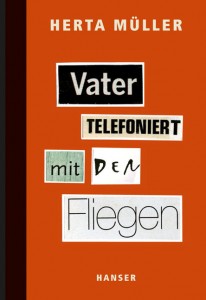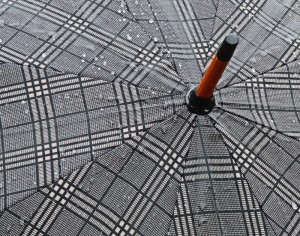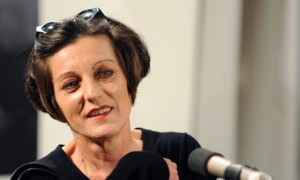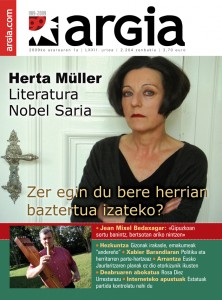Poetry in Translation (CCCXXXIX), Herta MULLER (b. 1953), ROMANIA-BANAT/GERMANY: “Colour Grey”, “Gri”
Colour Grey
Herta MULLER
(b. 1953, Banat, Romania)
1.
I grow time, beans, the colour gray
And stitch the shadows of a dying day
They make a woman, rather a girl
Lost in the ocean like a grain of pearl
The swans of Coole fly over me
Will they rest for a while by me!
Maybe it’s my turn now.
Deep in the frost where my eyes shall never go
The leopard will print his paw
And with a sudden leap break free
All the chimes of poetry
Maybe it’s my turn now.
The rough beast was never born
Though we devised a cage for his morn
Maybe it’s my turn now.
I have a tale to tell I shall also ring the bell
When you start believing
When you start hearing
Maybe it’s my turn now.
2.
These days I don’t think of you
But after the soot covers me
I begin to wonder where those
Evenings have gone, those wanderings
In the spacious lawns of enchantment
That smacked of no design, though
We were bent on making a sense
The early birds get their worms
I lie in the tireless ticking of my old watch
Counting the bits of frozen blood,
Listening to the worms
That are in all of us
Then I begin to crawl towards the womb
That threw me off a long way back
And look for the dark, the black hole
To suck me up.
3.
I was nice to him
He was nice to me
Only
Our doors, our windows
Kept closed
Lest we smell each other.
(Translated into English by Roger Woodhouse)
* * * * * * *
Herta MULLER
GERMANY (b. 1953, Banat, Romania)
“Gri” (fragment)
1.
Cultiv timpul, verdeaţa, cu nuanţe gri
Însăilând o umbră la sfârşit de zi
Zămislind femeia, sau poate-o fecioară
Pierdută în mare ca o perlă rară
Oare când lebede-n stoluri de albă zăpadă
Opri-se-vor, Doamne, la mine-n ogradă?
Poate-i sorocul meu.
În nămeţi de zăpadă care nu-i pot pătrunde
Leopardul îşi pune pecetea ori unde
Doar un salt acrobatic lăsa-va frâu liber
Coralei de versuri şi sclipirii de fulger
Poate-i sorocul meu.
Fiara pădurii n-a venit încă
Dar cursa e gata să fie la pândă
Poate-i sorocul meu.
Am o rugă de spus şi voi bate toaca
Când începi s-ai crezare
Să-ţi întretai suflarea
Poate-i sorocul meu.
2.
Nu mă gândesc la tine
Dar când pământul aprig îmi va cuprinde pieptul
Voi visa tot mai mult la acele zile.
(……)
Rendered in Romanian by Constantin ROMAN, London
© 2015 Copyright Constantin ROMAN, London
* * * * * * * *
 SHORT BIO: BB. Why the Nobel Prize for Literature?
SHORT BIO: BB. Why the Nobel Prize for Literature?
This year’s Prize for literature has a particular significance for several reasons:
1. This is only the fourth woman in nearly 100 years which has got a Nobel Prize for Literature
2. This woman is an exile originally from an ethnic minority who had come in conflict with the dictatorship in her country of birth and had to leave everything behind to start a new life in a very different country
3. This woman has persisted in her writings to produce a kind of novel denouncing the practice of dictatorship and believing strongly in the freedom of speech, the right to preserve Memory and accept the burden of History unadulterated and uncosmetisised.
4. This year of 2009 coincides with the 20th Anniversary since half of Europe’s dictatorships tumbled down – at least the Berlin Wall and the Dracula – like the “Pharaoh” otherwise known as “The Genius of the Carpathians”, not forgetting his wife, the said Elena Ceausescu – the real power behind the throne.
5. The recipient of this year’s NOBEL Prize, Herta Mueller (b. 1953 in Romania) comes from a country which lives badly the complex of being a “small country” (like Belgium, or Ireland, or perhaps even the Euskal Herria), little understood and much misunderstood and therefore she considers, at least through her literary output to change this perception. Being nominated for the Nobel Prize, puts Romania on the map in a very different way from the past stereotypes, of vampires, orphanages, human trafficking, trampling on human rights and more.
(Quoted from a letter sent by Constantin ROMAN to Gorka Bereziartua, Editor of ARGIA, Basque Country, Spain)





No Comments so far ↓
Like gas stations in rural Texas after 10 pm, comments are closed.